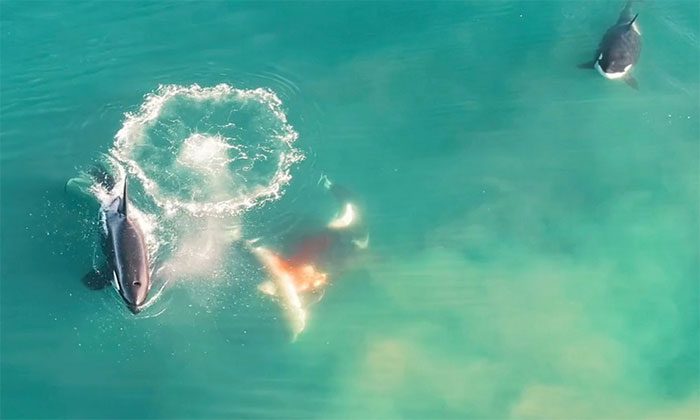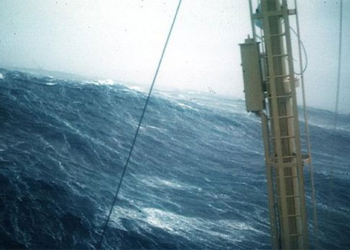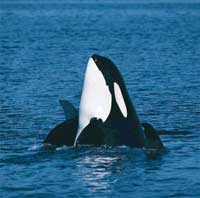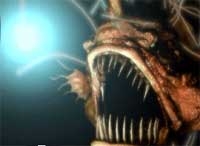Drone Captures Moment Killer Whales Kill a Great White Shark Off the Coast of South Africa Earlier This Year.
Killer whales hunt and kill a great white shark off the coast of South Africa. (Video: Alison Towner)
The footage was aired on the Discovery Channel on May 28, beginning with two killer whales swimming near the surface in the waters of Mossel Bay, South Africa, where great white sharks typically feed, according to Business Insider. Suddenly, a third killer whale emerged from the deep waters, grabbing a 2.7-meter long great white shark. As it approached the surface, blood spread around the shark’s carcass. The pod of killer whales circled around their prey. Eventually, one of them carried the shark’s body away.
Alison Towner, a scientist specializing in great white shark research in South Africa, stated that this is the first drone footage in the world capturing killer whales killing great white sharks, and it serves as the first direct evidence of this phenomenon recorded in South Africa.

A killer whale emerging from deep waters, grabbing a great white shark.
Great white sharks are often regarded as apex predators, meaning they have virtually no natural enemies. However, researchers have identified rare instances where great white sharks fall prey to killer whales. A study published in the Marine Science journal in June 2022 by Towner and colleagues indicated that great white sharks fled from their common feeding grounds in South Africa due to the presence of killer whales.
The research team noted that carcasses of great white sharks with their livers removed washed ashore, with some cases lacking even their hearts. The wounds on the great white sharks revealed they were inflicted by killer whales. In the newly released drone footage, the killer whale is seen grabbing the shark near its liver.
Towner and her colleagues believe that these attacks are driving great white sharks to migrate away from the area. The declining population of great white sharks is creating opportunities for other shark species, such as bronze whalers, to move in and feed, leading to profound impacts on the ecosystem.





















































